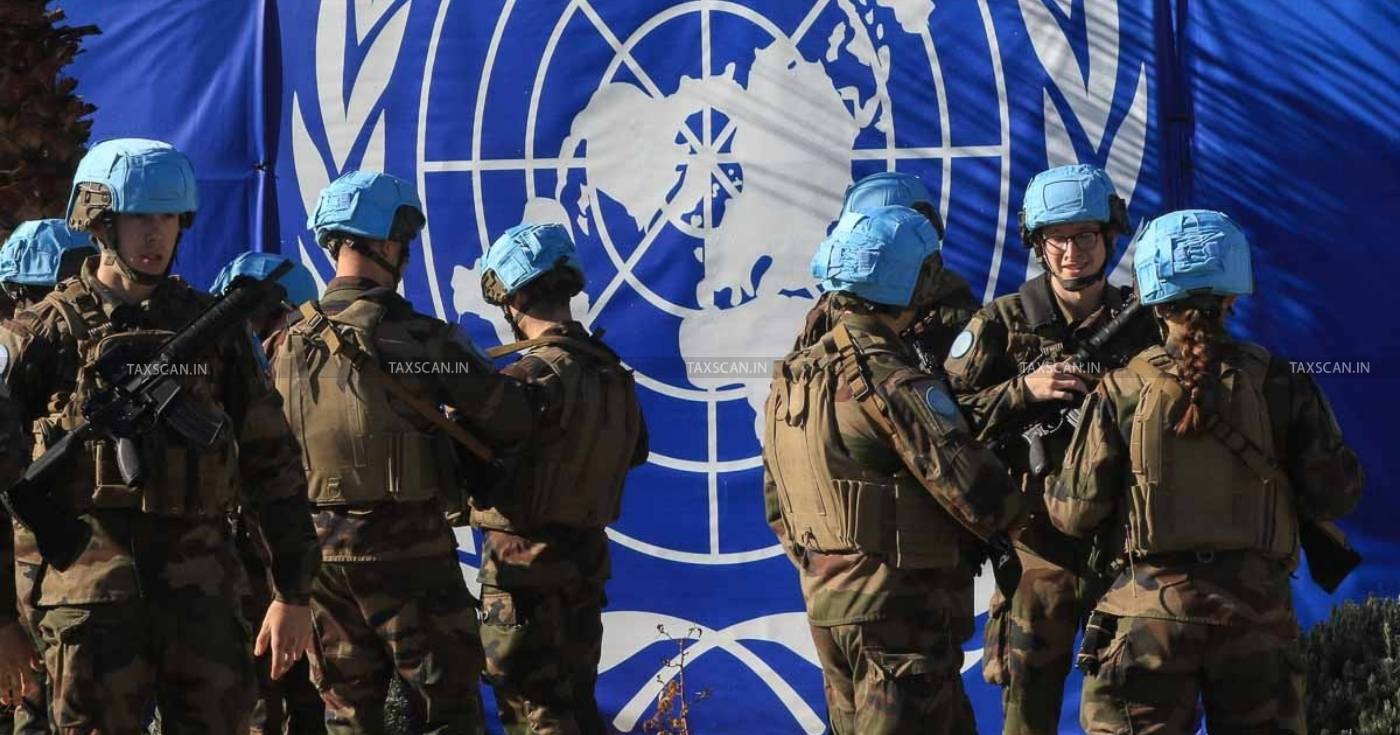Export Valuation Based on CRCL Moisture Content: CESTAT Rules Transaction Value in Invoice and BRC Must Be Accepted [Read Order]
The tribunal observed that the Fe content and other parameters were correctly determined as per the CIQ report and contract terms, and there was no reason to disregard the transaction value actually realised
![Export Valuation Based on CRCL Moisture Content: CESTAT Rules Transaction Value in Invoice and BRC Must Be Accepted [Read Order] Export Valuation Based on CRCL Moisture Content: CESTAT Rules Transaction Value in Invoice and BRC Must Be Accepted [Read Order]](https://images.taxscan.in/h-upload/2025/10/15/2096823-export-valuation-export-crcl-moisture-content-crcl-moisture-cestat-taxscan.webp)
The Hyderabad Bench of Customs, Excise and Service Tax Appellate Tribunal (CESTAT ) ruled that in exports of iron ore, the transaction value reflected in the final invoices and supported by the Bank Realisation Certificate (BRC) must be accepted for duty calculation, and the Adjudicating Authority cannot recompute export duty solely based on the Central Revenue Control Laboratory (CRCL) moisture content.
Sri Sainath Industry Private Ltd., appellant-assessee, was engaged in the export of iron ore under a contract that specified parameters such as Fe content and moisture percentage, which determined the final price. Since these values were not available at the time of export, the assessment was made provisionally.
Later, the assessee submitted the final invoice, BRC, and other relevant documents for finalisation, while the Department received the CRCL test report for the samples drawn during export. The Adjudicating Authority accepted the Fe content as declared, based on both the CIQ and CRCL reports, but found that the moisture content, declared at 6%, was actually 7.66% as per the CRCL report. The revised figure was adopted for duty calculation.
Upon finalisation, partial refunds were granted, but the appellant, dissatisfied with the computation, appealed before the Commissioner (Appeals), who confirmed the Adjudicating Authority’s order.
Comprehensive Guide of Law and Procedure for Filing of Income Tax Appeals, Click Here
The tribunal noted that the assessee argued that their exports were made as per the contract, which specified the Fe content and moisture levels. They pointed out that the Adjudicating Authority had accepted the declared unit price of USD 160 per Dry Metric Tonne (PDMT) and had no reason to reject it.
 Also Read:Cargo Space Sales and Reimbursable Expenses Not Liable to Service Tax: CESTAT Upholds Exemption for UN Peacekeeping Services [Read Order]
Also Read:Cargo Space Sales and Reimbursable Expenses Not Liable to Service Tax: CESTAT Upholds Exemption for UN Peacekeeping Services [Read Order]
The assessee stated that the final price was determined based on the CIQ test report and the contract terms, which required calculation on a Dry Metric Tonne basis. Accordingly, they raised the final invoice, and the payment was realised as shown in the BRC.
They contended that it was incorrect for the Adjudicating Authority to recalculate the duty using the CRCL moisture report while ignoring the actual realisation shown in the BRC. They argued that this violated Section 14 of the Customs Act and the Export Valuation Rules, which required valuation based on the transaction value. They also relied on the Supreme Court ruling in Eicher Tractors vs. Commissioner of Customs, Mumbai and the decision in Commissioner of Customs, Goa vs. VGM Exports.
The tribunal observed that the key issue in the appeal was whether the Adjudicating Authority was justified in re-computing the export quantity on a Dry Metric Tonne (DMT) basis by adopting the moisture content determined by the CRCL.
Comprehensive Guide of Law and Procedure for Filing of Income Tax Appeals, Click Here
It held that the export value had to be determined in line with Section 14 of the Customs Act and the Customs Valuation Rules, and unless there were valid reasons to doubt the transaction value, it could not be disregarded.
The two member bench comprising Angad Prasad (Judicial Member) and A.K.Jyotishi (Technical Member) found that the Adjudicating Authority had no grounds to reject the transaction value shown in the final invoices, which were duly supported by the BRC. There was no evidence of any extra remittance for the export, and the only variation related to the moisture content, which the CRCL found slightly higher than the declared value. As the contract clearly provided that the parameters would be based on the CIQ report, and the final price and invoices were accordingly finalised, there was no justification for ignoring the transaction value.
It noted that the re-computation was entirely based on the CRCL’s moisture report and referred to earlier decisions in Bonai Industries, Rungta Mines, Feegrade vs. CC and Vibhutigadda Mines vs. CC, where it was held that the moisture content determined by CIQ should be used for arriving at the DMT quantity and that the transaction value reflected in the invoices should be accepted.
Based on these findings, the tribunal held that the Commissioner (Appeals)’s order was unsustainable and set it aside. However, it remanded the matter to the Adjudicating Authority to recompute the refund after finalising the provisional assessment based on the transaction value supported by the final invoice and BRC.
The appeal was accordingly allowed by way of remand.
Support our journalism by subscribing to Taxscan premium. Follow us on Telegram for quick updates


